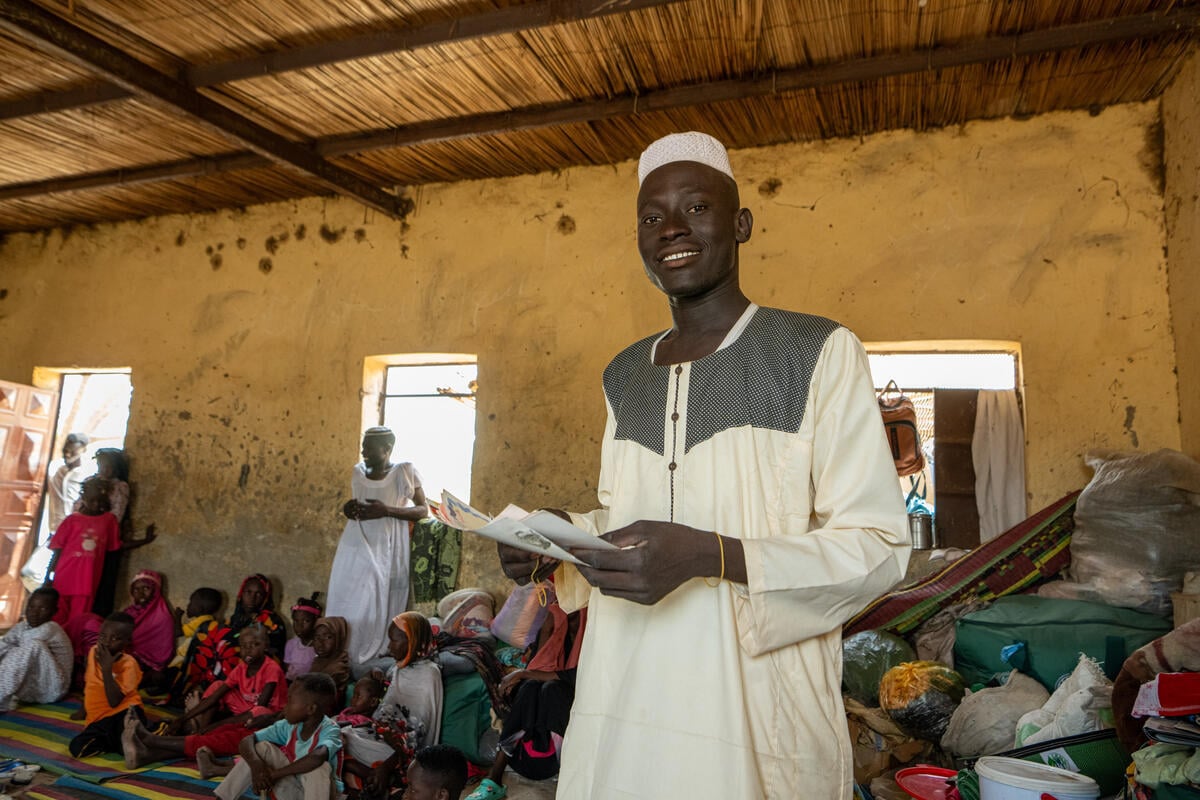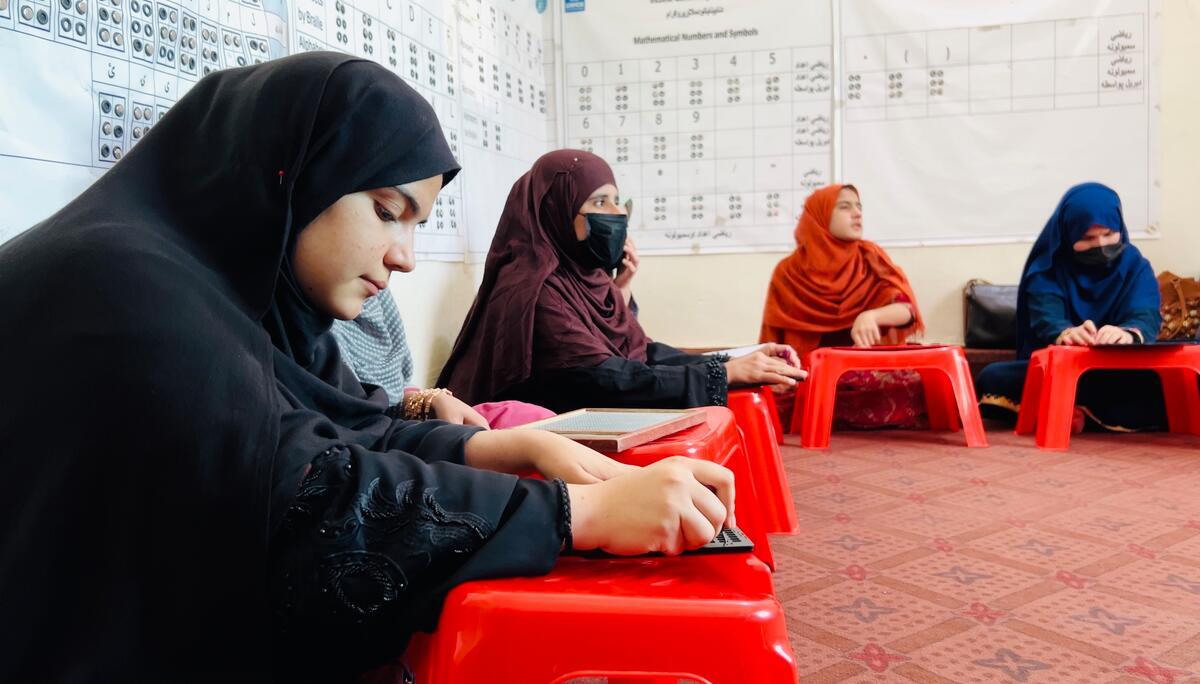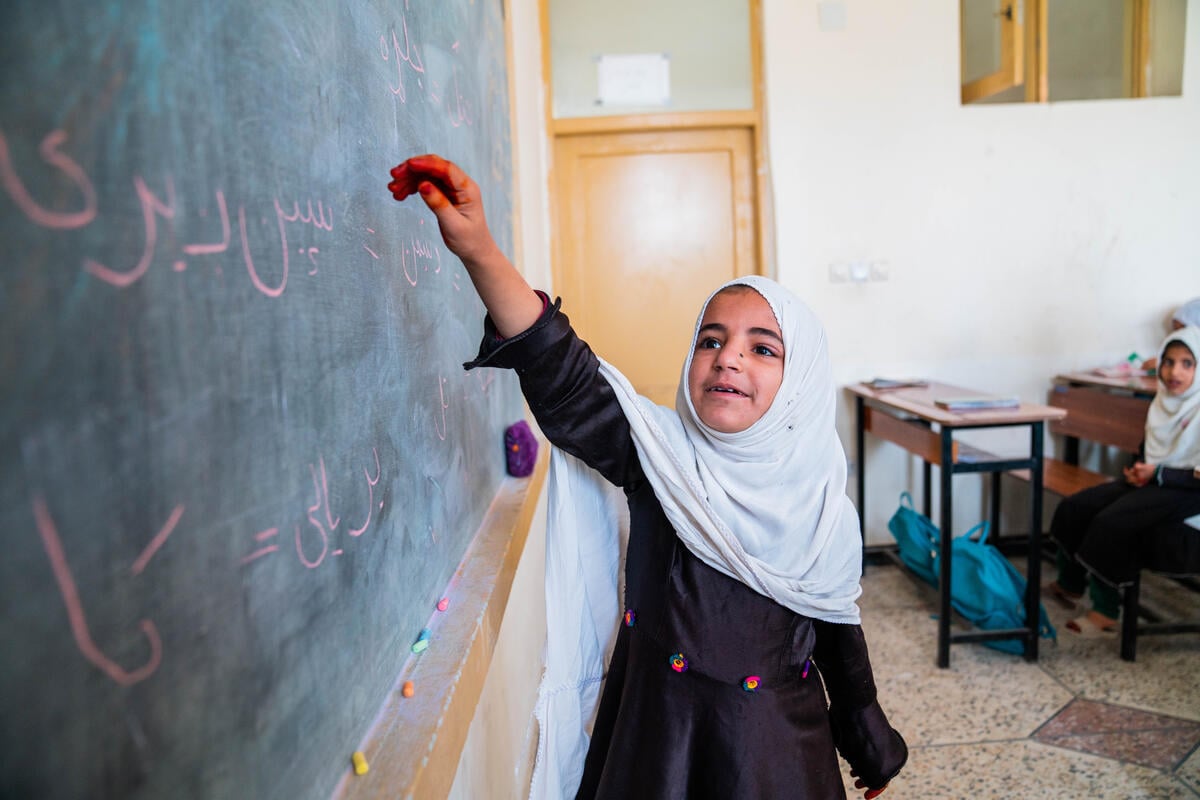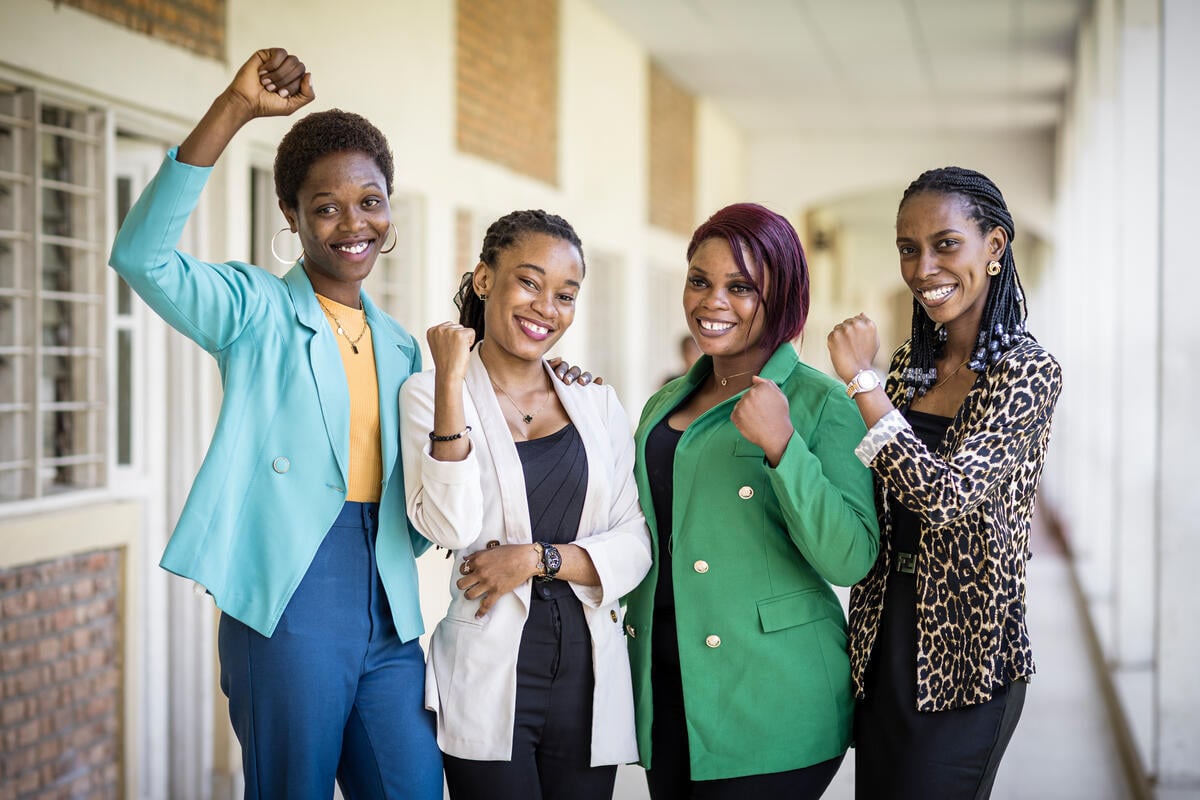Education Cannot Wait announces US$ 2.6 million grant to UNHCR to accelerate refugee inclusion in national education systems
Education Cannot Wait announces US$ 2.6 million grant to UNHCR to accelerate refugee inclusion in national education systems
NEW YORK – The number of refugee children in need of quality education support jumped significantly in 2023, reaching 14.8 million. To address these growing needs, Education Cannot Wait (ECWLink is external) and its strategic partners announced today a strategic Acceleration Facility GrantLink is external of US$ 2.6 million to UNHCR – the UN Refugee Agency – to accelerate refugee inclusion in national education systems in both emergency and protracted contexts.
The announcement was made at the Wilton Park eventLink is external “From Commitment to Action: Refugees’ Inclusion in Education,” as part of ongoing global commitments made at the 2023 Global Refugee Forum. The three-year grant includes $510,000 in earmarked funding from the United Kingdom’s Foreign, Commonwealth and Development Office (FCDOLink is external).
“Every child deserves a quality and safe education. Yet 72 million children are out of school globally and, with conflict and emergencies on the rise, the number of people displaced worldwide is increasing too. With partners like Education Cannot Wait, the UK is supporting children to access education, especially in times of crisis. By helping include refugee children in national education systems, millions more children will have greater stability and the opportunity to gain foundational skills for a better future,” said Alicia Herbert, Director for Education, Gender and Equality, Foreign, Commonwealth and Development Office.
“Together with UNHCR and our strategic partners, ECW stands by our shared commitment made at the Global Refugee Forum. We must ensure that every refugee child is enrolled in the national system and actually learns. This new grant – including the generous contribution from FCDO – turns our commitment into action,” said Yasmine Sherif, Executive Director of Education Cannot Wait, the global fund for education in emergencies and protracted crises in the United Nations.
“This grant is a powerful example of how we are turning the Global Compact on Refugees into action by coordinating emergency responses and working closely with governments on the inclusion of refugees into national education systems. Our collaboration with ECW strengthens this effort, and we are excited to build a solid foundation of knowledge on how donors and states can partner to ensure refugee children have sustained access to quality education, both in times of crisis and beyond,” said Sajjad Malik, Director of the Division of Resilience and Solutions, UNHCR.
Armed conflicts, climate change and other protracted crises have triggered significant spikes in forced displacement across the globe in recent years, with UNHCR predicting that the total number of those forcibly displaced will rise to 130 million by the end of 2024. This figure includes close to 15 million school-aged refugee children. As new emergencies arise and crises extend over longer time periods, this places additional pressure on the education systems of hosting countries. Education is a lifeline for refugee children and communities, helping build the skills needed for safer, productive futures.
In line with the commitments in the Global Compact on Refugees, ECW and UNHCR support the inclusion of refugees in national education systems as this offers opportunities for certification, progress from one level of learning to the next and avoids the risks of reliance on short-term, externally funded education provision.
The new grant builds on ECW’s long-standing collaboration with UNHCR. It will help the humanitarian system to be better positioned to support refugee inclusion in national systems and to find innovative ways of meeting the associated costs. In the early phases of a response, this will be achieved through strengthening refugee coordination mechanisms, while in protracted response settings, it will be achieved through strengthened approaches to national system inclusion.
The grant will also track progress and provide evidence on the operationalization of the 2023 Global Compact on Refugees multi-stakeholder Mega PledgeLink is external on refugee education.
This work builds on ECW’s previous investments in strengthening education response coordination in emergencies.
Note to editors
About Education Cannot Wait (ECW):
Education Cannot Wait (ECWLink is external) is the global fund for education in emergencies and protracted crises within the United Nations. We support quality education outcomes for refugee, internally displaced and other crisis-affected girls, and boys, so no one is left behind. ECW works through the multilateral system to both increase the speed of responses in crises and connect immediate relief and longer-term interventions through multi-year programming. ECW works in close partnership with governments, public and private donors, UN agencies, civil society organizations, and other humanitarian and development aid actors to increase efficiencies and end siloed responses. ECW urgently appeals to public and private sector donors for expanded support to reach even more vulnerable children and youth.
On X/Twitter, please follow: Link is external
- @EduCannotWaitLink is external
- @YasmineSherif1Link is external Link is external
- @KentPageLink is external
Additional information is available on the Education Cannot Wait websiteLink is external.
For press inquiries:
- Anouk Desgroseilliers, adesgroseilliers@un-ecw.org, +1-917-640-6820
- Kent Page, kpage@unicef.org, +1-917-302-1735
For other inquiries: info@un-ecw.org








